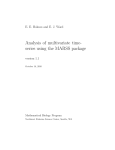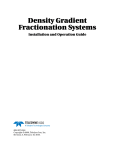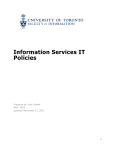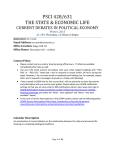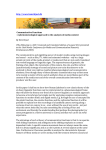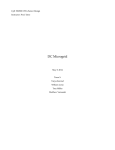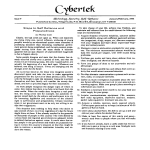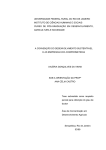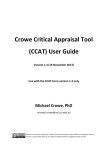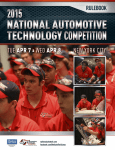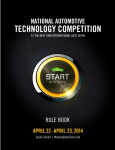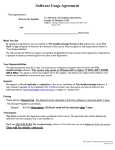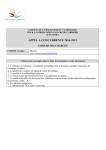Download POL 305Y - Department of Political Science
Transcript
COURSE OUTLINE POL 305Y POLITICS AND SOCIETY IN LATIN AMERICA DEPARTMENT OF POLITICAL SCIENCE UNIVERSITY OF TORONTO SUMMER 2013 INSTRUCTOR: MARCO FONSECA, PH.D. [email protected] POL 305Y Summer 2013 OVERVIEW This course offers students a critical introduction to the history and politics of various Latin American republics and regions and charts the modern historical and political development of the area to the present. The first half of the course provides the necessary political background to understand the key problems and recurring challenges of the region. The second half of the course students focus more concretely on key political themes Latin America’s 20th and 21st century politics including populism, corporatism, dictatorship, revolution, neo-liberalism, new social movements, civil societies and globalization. These themes constitute the necessary foundations for a critical understanding of current Latin American politics. COURSE STRUCTURE The lectures for each week explore the major themes of the course and set them in historical and political context. Regular attendance to lectures will be integral to this course as it will be impossible to follow all materials properly otherwise. Students will be expected to have read all materials outlined for the appropriate units of study as they constitute the context on which the lectures will be based and from which they will partially draw. Your success in this course will depend very substantially on the degree of commitment you make to your attendance, your readings, and the timely submission of all your assignments. EVALUATION SCHEME Assignment 1. Review Paper 2. Theory Paper 3. Critical Media Analysis 4 Test Total Details Due Dates Weight 6 pages 12 pages 8 pages May 29 June 26 July 31 15 % 35 % 25 % Instructions in class August 13 25 % 100 % REQUIRED READINGS Ø David Close, Latin American Politics. An Introduction. Toronto: University of Toronto Press, 2009. 2 POL 305Y Summer 2013 Ø Harry E. Vanden and Gary Prevost, Politics of Latin America. The Power Game. 4th Ed. Oxford: Oxford University Press, 2011. RECOMMENDED READINGS Ø Steve Ellner, Rethinking Venezuelan Politics. Class, Conflict, and the Chávez Phenomenon. Boulder: Lynne Rienner, 2008. Ø Forrest Hylton & Sinclair Thomson, Revolutionary Horizons. Past and Present in Bolivian Politics. London: Verso, 2007. Ø Geraldine Lievesley & Steve Ludlam (eds), Reclaiming Latin America: Experiments in Radical Social-Democracy. London: Zed Books, 2009. RULES AND REGULATIONS EMAIL COMMUNICATION Email communication with the instructor or GA is reserved only for short and brief questions when appropriate and in a manner consistent with the university’s Policy on Official Correspondence with Students. Email communication is NOT to be used for any substantial discussion on course topics or papers, as a substitute for class or office hours or as a private tutorial. For all substantial questions or issues students must visit the course instructor or the GA, when appropriate, only during designated office hours. LATE SUBMISSIONS AND EXTENSIONS Assignments submitted late, without a previously obtained extension from the instructor or without proper documentation, will receive a late penalty of 2% per day (including weekends) for the first ten days and will be categorically refused thereafter. Extensions will be granted only when students are able to produce compelling reasons for their inability to meet a deadline and supply satisfactory documentation to back-up their claims. Examples of satisfactory documentation include: a University of Toronto Student Medical Certificate for a severe illness (this excludes colds, sore throats, and the like), death certificate for a close relative, police report of personal accident, business/work related documentation, etc. Extensions will not be granted in cases of computer breakdowns, malfunctions, or loss. Backup all of your work! MEDICAL NOTES The University of Toronto Student Medical Certificate must be submitted in support of a request for an exemption from course policies, if illness is being used as the reason for the request. The claim of illness, however, is not sufficient grounds in itself to guarantee approval of the request. This certificate is available online or at the Health Services (Medical and Psychiatric 3 POL 305Y Summer 2013 Services), the Office of the Faculty Registrar, College Registrar’s Offices, departments and other offices of the University as well as in the Registration Handbook and Timetable. Note that the Medical Certificate must establish that the patient was examined and diagnosed at the time of illness, not after the fact. The instructor will not accept a statement that merely confirms a report of illness made by the student and documented by the physician. Other medical notes will not be accepted. QUESTIONS ABOUT GRADES If students have questions or concerns about grades, and if the assignment was graded by a Grading Assistant (GA), an appeals process will operate in the following way: 1) students must first contact their GA about the issue; under no circumstances should students bring an appeal to the instructor without first taking their appeal to the GA. In order to obtain a revision of their assignment and potentially an amended grade, the student must demonstrate in writing (one page note, no exceptions) that their work did in fact meet the requirements of the assignment and was therefore unfairly or improperly assessed. 2) If the student and the GA are unable to resolve their differences, the student will then take the appeal to the instructor, and the original grade will then be void. The student must provide the instructor with a clean copy of the assignment (preferably as an email attachment) and the instructor will grade the assignment “blind,” i.e. without prior knowledge of the grade in question. Consequently, the student will potentially receive a lower, the same or a higher grade than the original one. The student should be aware of these risks. PLAGIARISM Plagiarism is a serious academic offence and will be dealt with accordingly. For further clarification and information, please see the University of Toronto’s policy on Plagiarism. EXTENSIONS AND VACATIONS There will be no rescheduling or extending assignment deadlines or presentations as a result of pressures that result from overall course load (for students taking more than five full courses, even if they are in their last year), requirements from other courses (overlap in due dates, simultaneous assignments due on the same week, overlapping tests or exams, etc.), or extracurricular activities (when voluntarily chosen by students). If students are planning vacations or extended trips during any breaks or holidays that take place during schedules classes or at the end of the final school term, and if these plans interfere with the completion of their course work, students must ensure that they check all relevant due dates for the fulfilment or completion of all assignments BEFORE they make any other plans and that they comply with these dates. No exemptions will be made for anyone for any type of vacation or extended trip, for any reason, except in those cases when a student may be faced with circumstances totally beyond their control. 4 POL 305Y Summer 2013 MISSED FINAL TEST Students who miss the final in-class test will be assigned a mark of zero for that test unless they satisfy the rules and regulations outlined on the University of Toronto’s Faculty of Arts & Science 2012-2013. ACCESSIBILITY The University of Toronto is committed to accessibility. If you require accommodations for a disability, or have any accessibility concerns about the course, the classroom or course materials, please email or visit Accessibility Services as soon as possible. TURNITIN In addition to submitting their work on course’s Blackboard Website, students will also be required to submit their course essays to Turnitin.com for a check of academic integrity. In doing so, students will allow their essays to be included as source documents in the Turnitin.com reference database, where they will be used solely for the purpose of detecting plagiarism. The terms that apply to the University’s use of the Turnitin.com service are described on the Turnitin.com web site. What is Turnitin? Turnitin is an Internet-based service created at the University of California, Berkeley. Essentially, Turnitin scans submitted works for similarity to material in public web sites, academic journals, papers purchased from essay mills, and essays and assignments concurrently or previously submitted to Turnitin, which are stored in its database. For more information, please the Student Guide to Turnitin at UofT. Further information and instructions on using Turnitin, you can download Turnitin’s own Student User Manual. In order to setup an account and user profile, please the instructions on the Student Guide. To access Turnitin, you will need the following information: The class ID number for POL 305Y as posted on Blackboard; the enrolment password for this Summer is pol305y2013 (without quotes and all in lower case). Opt-out Options Students who do not want to submit their papers to Turnitin can instead opt to have their papers assessed by one or several of the following options: 5 POL 305Y * * * * * * * * * Summer 2013 Submitting multiple drafts Submitting a detailed annotated bibliography Submitting photocopies of source documents Submitting of all rough work together with draft papers and final papers Submitting the library call numbers of all sources cited in your paper Taking an oral quiz directed at issues of originality Responding in writing to questions directed at issues of originality Providing a written report concerning the process of completing the work More than one of the above Note that choosing any of the options above does not override the specific requirements of each assignment. When any or several of these options have already been used in the process of preparing assignments, for example, students can still request the instructor to use extra options not already used in the preparation of their assignments in order to meet the opt out options. For further information on academic integrity and the use of Turnitin, see the University of Toronto’s guidelines on Understanding Academic Integrity. FINAL NOTE ON RULES AND REGULATIONS If there is any conflict between this course’s rules and regulations and the University of Toronto’s academic policies, the latter policies will of course take precedence. 6 POL 305Y Summer 2013 LECTURE, READINGS AND ASSIGNMENT SCHEDULE Please Note: This lecture schedule is given to students as a general idea of the direction that classes will take. Lectures might cover more or less material than indicated below, repeat some materials from previous presentations or anticipate materials from later ones. Some lectures may also overlap or may have to be cancelled. The schedule of readings and assignments, however, is likely to remain unchanged. MAY 13: INTRODUCTION MAY 15 – MAY 22: FROM DESTRUCTION TO INDEPENDENCE: WHY HISTORY MATTERS Required Readings Ø Close, chapters 1 – 2 Ø Vanden and Prevost, chapters 1 – 2 MAY 27 – 29: THE HISTORIC POWER ELITE: THE POLITICS OF CAUDILLISMO (STRONG MEN) Required Readings: Ø Close, chapter 3 Ø Vanden and Prevost, chapter 3 REVIEW PAPER DUE MAY 29 JUNE 3 – 5: THE IDEOLOGY OF PROGRESS: THE POLITICS OF AUTHORITARIAN LIBERALISM AND AGRO-EXPORT CAPITALISM Required Readings: Ø Close, chapter 4 Ø Vanden and Prevost, chapter 7 JUNE 10 – JUNE 12: NEW POLITICAL CONTENDERS: THE POLITICS OF POPULISM AND NATIONAL CAPITALISM (ISI) Required Readings: Ø Close, chapter 5 Ø Vanden and Prevost, chapter 8 JUNE 17 – 19: A NEW MACHINERY OF GOVERNMENT: THE COLD WAR, THE US AND LATIN AMERICA AND THE POLITICS OF NATIONAL SECURITY Required Readings: Ø Close, chapter 6 Ø Vanden and Prevost, chapters 11 – 12 JUNE 24 – 26: COURSE BREAK THEORY PAPER DUE JUNE 26 7 POL 305Y Summer 2013 JULY 3 – 8: THE DREAM OF ANOTHER WORLD: THE POLITICS OF REVOLUTION Required Readings: Ø Vanden and Prevost, chapter 10. Suggested: chapters 6 and 14 JULY 10 – 17: NEOLIBERALISM AND ITS NIGHTMARE: THE RISE OF HUGO CHÁVEZ, RADICAL SOCIAL DEMOCRACY AND THE “PINK TIDE” Required Readings: Ø Close, chapter 7 – 8 Ø Vanden and Prevost, chapter 18 Recommended Reading: Ø Steve Ellner, Rethinking Venezuelan Politics, chapters 5 – 7. Ø Julia Buxton, “Venezuela: The Political Evolution of Bolivarianism” and Sara C. Motta, “Venezuela: Reinventing Social Democracy from Below” in Reclaiming Latin America: Experiments in Radical Social-Democracy. JULY 22 – JULY 31: RADICAL INDIGENOUS POLITICS AND THE RISE OF EVO MORALES Required Readings: Ø Close, chapter 8 – 9 Ø Vanden and Prevost, chapters 4 and 21 Recommended Reading: Ø Forrest Hylton & Sinclair Thomson, Revolutionary Horizons. Past and Present in Bolivian Politics. London: Verso, 2007, part 3 (The Present as History, 1985 – 2006). Ø John Crabtree, “Bolivia: Playing By New Rules” in Reclaiming Latin America: Experiments in Radical Social-Democracy. CRITICAL MEDIA ANALYSIS JULY 31 AUGUST 7: CONCLUSIONS AUGUST 12: IN-CLASS TEST 8 POL 305Y Summer 2013 INSTRUCTIONS FOR COMPLETING ASSIGNMENTS REVIEW PAPER --------------------------------------------------------------------------------------------------------------------Due Date: Weight: Length: May 29, 2013 15% 6 double-spaced pages --------------------------------------------------------------------------------------------------------------------INSTRUCTIONS This review paper must include the following elements: a) An introduction to a recent political situation from Latin America. You are expected to use this situation as the springboard from which you can engage larger discussions about Latin American politics. To do this you should read at least five relevant scholarly sources (preferably books, but you may include one or two scholarly articles) on the topic so as to be able to then write a review of these items. b) A concise summary of the way in which your sources approach your selected topic or the political situation under consideration. This should not be confused with merely describing the situation in your own words and without any scholarly grounding. You really need to focus on how your sources approach the topic. c) A selection of key concepts central to the argument/analysis from your selected sources, along with the key definitions they offer, and supplemented with a discussion of the meaning and significance of those concepts. In doing this you need to demonstrate that you can interpret key concepts adequately, that you can contextualize those concepts rather than discuss them in isolation or abstraction, and that you can discuss concepts with reference to supplemental sources to ground your own interpretations. d) An assessment of the quality and significance of the argument with regard to logic, theory and the nature of the evidence (historical and scholarly) used by your source scholars. Here a good consideration of the approach used by the scholar is important, but do not confuse approach with discipline. For example, Political Science is a discipline, but positivism, rational choice, classical liberal or Marxist political philosophy, interpretivism, structuralism, post-structuralism, Marxism, corporatism, behavioralism, realism, pluralism and institutionalism are different approaches or paradigms. It is within these approaches that scholars actually interpret the “data”, the issues or the world that they “observe.” In fact, there are no interpretations of “reality” that do not take place within a given theoretical paradigm or framework. Political Science also intersects with other fields like economics, law, sociology, history, anthropology, public administration, public policy, national politics, international relations, 9 POL 305Y Summer 2013 comparative politics, psychology, political organization, and political theory. In addition this discipline also influences and is in turn influenced by interdisciplinary fields of study properly speaking such as development studies, international studies, women’s studies, postcolonial studies and the like. Thus, it is possible to find scholars doing interdisciplinary work. Like all disciplines and interdisciplinary fields of study, Political Science too has its own set of specific concepts and methodologies and it is possible to stay within “the box” of the discipline to do your work. For this paper, however, you should research and find scholars writing on your chosen topic who go beyond the box or boundaries of this discipline and who explicitly and critically engage with theoretical approaches. How, then, do these scholars employ specific theoretical approaches? What empirical, historical or theoretical evidence is offered and how is it interpreted and organized based on their approach? What assumptions underlie the argument and how are they justified? What is the significance of the argument? In what way and based on what do you interpret the argument? e) Students should review a minimum of six scholarly sources, but the extent of each review can be flexible. Note that you CANNOT use the textbooks we’re using in this course as your primary materials for this assignment. You can, and you’re indeed encouraged, to use these textbooks as secondary or background materials to supplement your own research. SHOULD YOU PREPARE A DRAFT PAPER FOR YOURSELF? WHY IT IS IMPORTANT TO DRAFT YOUR ANALYSIS OF ARGUMENTS As with other aspects of writing an argument, your organizational strategy will vary according to the requirements of its disciplinary context, your knowledge and level of expertise when it comes to theory, and your previous experience writing theory papers – if any. It will also crucially depend on the careful preparatory work you do before writing the big paper including whether or not you mindmapped the main ideas, outlined the main themes, carefully reviewed the primary and secondary literature or wrote a draft paper. But before you learn what drafting the argument entails, you should first know what it does not for this assignment. First, the theory paper is not about merely expressing personal opinions (already formed or developed in this course) on a given topic, issue or “object”. Allow me to quote an argument (note what I’m doing right here!) on the difference between personal opinions and academic arguments: As human beings living in an uncertain world, we make claims about many matters about which we do not have knowledge or even well-confirmed beliefs. An opinion is a belief, often held with a rather low degree of confidence. Usually when we hold opinions, we are aware that they are our opinions in the sense that we cannot fully defend them by citing reasons or evidence in support. For example, it may be one person’s opinion that wilderness skiing is safe and 10 POL 305Y Summer 2013 another’s opinion that it is dangerous. These are opinions, but nevertheless it is clear that reasons and evidence are relevant to their credibility; there are facts about avalanche risks in various areas, and the suitability of various kinds of equipment. Such facts can be studied and reported in ways that are more or less reliable. Politically and legally, we are free to hold any opinion at all, as people so often insist when they say things like “I’m entitled to my own opinion.” In normal circumstances, others cannot coerce us into believing something we don’t believe. However, the political right to hold any opinion does not mean that all opinions are intellectually equal. Some opinions are mere opinions, whereas other opinions are based on evidence, reasoning, and good judgment (Trudy Govier, A Practical Study of Argument. 7th Edition. Wadsworth, 2010: 3). Writing a theory paper based on personal opinions does not require in-depth scholarly research, taking into account the scholarly literature on your chosen topic, taking into account the longterm historical context (what Fernand Braudel calls the “long durée”), or taking into account the multiple layers of meanings, dynamics and structures likely underpinning your topic of research – the “object” of study. Strategies of writing that do not take the above elements into account amount to certain kinds of mainstream – sensational, event-driven, short-term, shallow – journalism and, often, have a distorting and even ideologizing (i.e. reinforcing of mainstream dominant prejudices and perceptions) effect on what you are trying to say. In fact, you don’t even need to attend university to be able to write any old paper based merely on personal opinions that can easily result in the propagation of distorted or ideological views. Instead, in this course, drafting the argument means putting together a carefully developed, contextualized, and supported scholarly and critical perspective on a given “object” without the embellishments or rhetorical flares, without the flamboyant language or without the added weight and space of empirical examples, charts, tables, “data”, and a finished listed of sources. Second, writing an argument does not mean using books or sources as bricks or “fact bags” to build or support your own opinion on something thinking that the more or less of these bricks you use, the more or less your “picture” of the “object” will be, well, more or less complete. What this assumes, from your part, is that saying something “true” about an “object” is a matter of constructing or putting the picture together, in a “balanced” way, by drawing from multiple sources or opinions and ending with “your” own. This also means that your effort in this process is to try and eliminate as much “bias” in the construction of your picture as you can and, as result, you have the true object of your desire on a paper and on display. Nope. This strategy will not work in this course! What I want you to do, from outline to final paper, is to frankly and explicitly state from within what argumentative perspective, from within what theoretical framework, and based on whose arguments, your are planning to explore a given topic, issue or “object” of study. You do this, of course, by quoting or paraphrasing the specific scholarly arguments you want to use to approach your selected topic, issue or “object” of study. This does not mean you cannot express or state how you feel about the very arguments you are both exploring and, possibly, advancing as the most convincing to you to make sense of the topic, issue or “object” of study. But expressing these feelings or views is no substitute for the 11 POL 305Y Summer 2013 arguments themselves or their theory frameworks, key concepts and assumption, and normative or practical implications. Finally, an argument is NOT the same as a “thesis statement”. What is the difference? An argument in social and political theory presupposes an inescapable level of scholarly interpretation insofar as a) the type of human relations we deal with involve identities, subjectivities, values, symbols, norms and, obviously, peoples’ own interpretations of them; and b) we ourselves are very much a part of the world we are trying to understand and explain and this means that we can only have “valid” views of it from the inside. A “thesis statement” in the natural sciences, by contrast, usually involves the formulation of a hypothesis (a tentative theory) and the search for “evidence” to demonstrate or falsify the truth content of that hypothesis. As part of this scientific methodology, this type of approach involves a split between the observer and the observed, the subject and the object, and the goal of scientific inquiry is the gradual approximation to the truth by means of the elimination of interpretation (wrongly understood as “bias” or “prejudice”), values and norms, and even identity and subjectivity from the process and logic of discovering “objective reality.” In the natural sciences, therefore, this is a process where observers (subjects) get to know objects “as they truly are”, a process that presupposes the handling of “facts” and “empirical evidence” as standing apart, beyond and even against the observers themselves and thus a process where “objective reality” constitutes the ultimate arbiter of truth. The underlying theory of truth that underpins current ideas about “scientific discovery” (particularly the correspondence theory of truth) and the various ideas of validity that underpin social and political arguments (based on dialectical, deconstructive, structural, normative, semiotic, social-psychological, and other “qualitative” methodologies) are, therefore, very different. What, then, is involved in drafting an argument in theory? Of course, there are probably as many ways to draft an argument as there are arguments; however, there are a few tried and true methods – from adversarial to mediation based, and deductive to inductive reasoning – which work well and have wide critical acceptance in the academic world. None of them are carved in stone, however. For an explanation and illustration of a number of useful methods to guide you in drafting your paper, please refer to the document entitled “Drafting an Argument” available on the course’s Blackboard site. A key element that you must keep in mind when drafting your paper is that, in this course, your paper is required to incorporate a certain level of understanding and critique or critical analysis. What does writing an interpretive and critical paper involve? Most of the time we think of critical arguments as adversarial, taking place between people who fundamentally disagree and as arguments where one position will be right and the other wrong; one position wins and the other loses; and of course you, the student, are always on the winning side! Based on this commonly held idea, then, a critical argument would consist of trashing someone else’s argument, showing their “biases” and “mistakes”, and exposing their attachments to hidden or overt values, normative or ideological positions or even illusions or delusions. Thus, being critical often means adopting the language of “science” (empirical, factual, “truth”-driven) and 12 POL 305Y Summer 2013 pointing out how your adversary fails to do the same. However, this is not what a critical paper involves in this course. A critical paper is one where the argumentative strategy consists, among other things, in the understanding of the context that determines the meaning and nature of what we want to “explain” (including our relationship to that context) and an examination of the “conditions of possibility” of a given object or arguments about that object (including our level or capacity to understand those conditions). What are the historical conditions that made a given social state of affairs possible? What are the scholarly arguments or theoretical frameworks that make it possible for us to perceive and understand the world around us? How did these arguments come about? How did the “objects” of our interest become socially constituted? How did they become dominant or hegemonic? What gives them “structural” or “objective” reality? How is “power”, for example, a factor in these conditions of possibility? Writing a critical paper, therefore, involves systematically understanding and exploring the conditions of possibility of the object under discussion, the key arguments around the object that are at our disposal, and our very investment in the constitution, existence, and perception of the very thing we are trying to explain. The purpose of writing your draft paper, then, is to give you a chance to work extensively on developing the key scholarly arguments of your paper without all the supplementary information and background, linguistic or stylistic refinements, and empirical examples that will be required for the final paper and for which you will have more space – more pages! – to write. Also, of course, evaluating your draft paper is an assignment onto itself because it involves the development and application of a number of research, reading, analytical, and critical skills that are crucial for academic papers and that must be assessed before writing any kind of final paper. If you find the above explanation of what is required to write an argument in this course too vague or obscure, let alone how to put these ideas into practice when actually writing your draft, I highly recommend that you consult Trudy Govier’s text as well as the following documents available to you on the course’s Blackboard site: “Illustration of the Use of Arguments”, “Fit to Print: The Argument”, and “Drafting an Argument”. 13 POL 305Y Summer 2013 THEORY PAPER --------------------------------------------------------------------------------------------------------------------Due Date: June 26, 2013 Weight: 35% Length: 12 double-spaced pages. On average, there are 250 words per page depending on font type and size. --------------------------------------------------------------------------------------------------------------------In this course we have studied and applied concepts, approaches and critical conceptions, within and across several interdisciplinary areas of study, and as these are used in the study of Latin American politics. Your final paper asks you to do the same. You will choose a situation, on-going event or dynamics, or an idea that has a political dimension and direct relevance for Latin America. You will then select at least ten scholarly sources and as many background sources as you need to carefully analyze how, through their arguments, your source scholars propose to view or interpret the event, issue or idea that you have selected for this paper. Through an examination of key concepts, theory and possible interpretations of these you will contextualize the topic by assessing any geographical, economic, political, historical and cultural dimensions that may be specifically raised by your source scholars and not simply because you think it is relevant or necessary. Once you have done this, you will draw some interpretive conclusions on the issue, that is, given a certain argument and given a certain interpretation on the topic you will discuss what is possible and tenable to see in the event or in its practical unfolding. Based on further scholarly sources as support you may perhaps also suggest some ways in which the topic could be further studied. 1. You must select a clear current situation, on-going event or dynamics, or idea from presentday Latin American politics. You can do so from news sources. 2. Your paper must have an introduction that clearly defines the topic and summarizes how you read and interpret the scholarly arguments that have been formulated around the topic. This is the place where your paper becomes either an “opinion” paper or an analytical, interpretive paper as required in this course. 3. In the body of your paper you must carefully analyze the issue in terms of the key concepts, approaches and/or critical conceptions proposed by your source scholars. The analysis of concepts, theory or critical conceptions is not something you do to illustrate the paper, but constitutes the core, the heart of this assignment. Empirical examples, policy analyses, quantitative data and the like that your source scholars may use constitute only an illustration of the arguments and must also occupy that position in this paper. If your scholarly sources place empirical evidence, quantitative data, case studies and the like as the core of their discussion, either you chose the wrong sources or you will have to dig deeper in your reading 14 POL 305Y Summer 2013 of those sources to find the theory framework on which those empirical discussion rest and, thus, make your work a bit harder. Your discussion of the scholarly arguments must be well organized in a coherent (not contradictory or inconsistent) and logical manner. This means you need to figure out what arguments are more general and abstract and which ones are more concrete and specific and organize your paper accordingly. The sum total of these arguments constitutes the “position” of the paper and this assumes not that your own personal views will be at the centre of this paper, but that you have given careful thought and consideration to your sources and that you, obviously, agree with what they say. Although you take existing scholarly arguments from each approach (again, arguments that complement rather contradict each other) and weave them together to form an overall argument in the body of the paper, this thus also constitutes your position. So choose arguments carefully as this reflects your thinking on the issue. 4. You should also select or place the arguments or scholarly sources in a disciplinary context as this relates to Political Science. But only do so if necessary and if explicitly done by your source scholars themselves. Do not force arguments into theory or discipline contexts to which they may not belong either implicitly or explicitly. Some basic question you can ask of your sources as you read them include: a. What are the peoples and places involved in the issue? How are environmental, social and geographical boundaries important? Identify scholars, offer references to their work, list them in your bibliography. b. What is the history of the issue? How did it come to this point? Identify scholars, offer references to their work, list them in your bibliography. c. What political-economic situations exist between the various actors? Identify scholars, offer references to their work, list them in your bibliography. d. What are the stakes involved? What kinds of power are exhibited? Which players are using what kinds of power in pursuit of which stakes? Identify scholars, offer references to their work, list them in your bibliography. e. What kinds of values do the various groups involved in the issue hold? How is the issue tied to the identities of different kinds of persons? What kinds of misunderstandings have arisen between the various actors? Identify scholars, offer references to their work, list them in your bibliography. 5. A theory paper is best when it is well, well grounded on scholarly work. But it’s even better when supplemented by extra readings that expand on or help make sense of the arguments under examination. So, instead of “filling in” the gaps that you think you find in your selected sources with your own views (this is much easier than actually researching more), it is better that you locate additional sources to fill gaps, explain interpretations, expand the arguments. Although students are often very tempted to find so-called “balanced” perspectives or to try and “balance” arguments themselves (with their own opinions or with opposing sources or perspectives), for this assignment you’re discouraged from doing this. In this paper you do not need to engage in comparative analysis (even less so when it is you, 15 POL 305Y Summer 2013 based on your own decisions, doing the comparison against your own views) and, in fact, you are welcome to explore and expand on arguments developed within only one perspective or paradigm. 6. Your paper should have a conclusion where you will draw some interpretive conclusions on the issue. The conclusion should logically follow from the analysis of concepts, arguments, theory and the interpretations you have explored in your paper. Based on further scholarly sources as support you may perhaps also suggest some ways in which the topic could be further studied. The reasons for your stand must follow logically from the material presented. You should not contradict in your conclusion what you have examined/stated in the body of your paper. And your conclusion should not be a simple denial of what your sources are arguing, but must logically build on them. Format requirements Ø Paper MUST be formatted in size 12, using Times New Roman font with 1-inch margins and double-spacing. Paper must not exceed 12 pages in length, excluding title page, endnotes, bibliography or appendices. Ø Paper MUST have a separate sheet as a title page. Your name, student number, and an appropriate (and creative) title MUST appear on this title page, which is your paper’s first page. Ø Paper MUST be submitted online, on the due day and without differences, to BOTH Blackboard and Turnitin. Paper MAY also be required to be submitted in printed form directly to your GA. Ø A bibliography (including properly formatted Web-site URL’s) must follow the text on a separate sheet(s). Ø Spelling, grammar, punctuation, and writing style are important in communicating your ideas, and the failure to proofread will affect your grade (spell check alone is insufficient for this task). Ø The paper must inform the reader of the author’s sources of information and should use a consistent citation style. For this course you MUST use the Chicago Manual of Style. Ø Pages must be numbered consecutively from the first page (not from the title page). Ø Points will be deducted for not following these guidelines. Grading Criteria Although your paper will be graded as a whole, here are key elements that must be present in your paper if it is to achieve an A or above: Ø Topic/situation/context: Does the paper clearly describe/contextualize the topic, event or issue? Is this based on personal opinion or research/theory? Ø Concepts and approaches: Within what approach (liberalism, Marxism, liberal internationalism, critical realism, constructivism, feminism, etc.) is the topic been 16 POL 305Y Ø Ø Ø Ø Summer 2013 interpreted? Are key disciplinary elements being engaged? Is the paper staying within a single discipline or does it reach an interdisciplinary, theoretical level or approach? Interpretation and clarity: Is the argument or set of arguments clear, backed by theory, and easy to follow? Have arguments been explained and interpreted or just merely stated as “facts”? Sourcing: Does the paper use at least two news sources from outside English/French North America? Are these sources well described? Does the paper use enough scholarly/academic sources to satisfy the interdisciplinary and theoretical requirements of this assignment? Citation: Are all the sources properly cited using the Chicago Manual of Style? Writing Style: Is the paper written in a clear and engaging manner? Is it relatively free of errors of syntax, grammar, spelling, and punctuation? Was the paper proofread? Is it correctly formatted? The University of Toronto calendar defines an excellent paper (the “A” and above paper) as a paper that exhibits the following characteristics: “Strong evidence of original thinking; good organization; capacity to analyze and synthesize; superior grasp of subject matter with sound critical evaluations; evidence of extensive knowledge base.” This means, then, that an excellent paper must rise above a simple factual description or understanding of the subject matter and a basic ability to raise basic questions and search for basic answers in the materials; it also means that an excellent paper should also rise above a good grasp of the subject matter, go beyond offering just some evidence of critical capacity and analytic ability; and exhibit more than just a reasonable understanding of the relevant issues or arguments about the topic and good evidence of familiarity with scholarly literature. The excellent paper is, thus, the original, wellorganized, analytical and synthetic paper with “superior grasp of subject matter” plus “extensive knowledge of the literature” and “sound critical evaluations”. For the purposes of this course, the “sound critical evaluations” must meet the criteria of the critical argument as defined above. CRITICAL MEDIA ANALYSIS --------------------------------------------------------------------------------------------------------------------Due Date: July 31, 2013 Weight: 25% Length: 8 double-spaced pages. On average, there are 250 words per page depending on font type and size. --------------------------------------------------------------------------------------------------------------------Instructions for this assignment will be posted on Blackboard in due course. 17

















